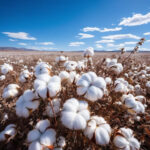Stubble burning is a common practice among farmers worldwide, especially in regions with intensive agriculture. After harvesting crops such as rice, wheat, and sugarcane, farmers are left with the residue, known as stubble or crop residue, in their fields. Traditionally, farmers have burned this residue to clear their fields quickly and prepare them for the next planting season. However, this practice has significant environmental and health consequences.
The Environmental Impact of Stubble Burning
One of the major consequences of stubble burning is air pollution. When crop residue is burned, it releases a large amount of smoke and particulate matter into the atmosphere. These pollutants can contribute to the formation of smog and worsen air quality, especially in densely populated areas. In regions like North India, where stubble burning is prevalent, the practice has been identified as a major contributor to the region’s poor air quality, particularly during the winter months.
Apart from air pollution, stubble burning also has detrimental effects on soil health and biodiversity. Burning crop residue destroys beneficial microorganisms in the soil and reduces soil fertility. It also releases greenhouse gases such as carbon dioxide and methane, contributing to climate change.
The Government’s Response: Ban on Stubble Burning
Recognizing the harmful effects of stubble burning, the government of India and other affected countries have taken steps to ban or restrict the practice. In India, the government has implemented a ban on stubble burning in states like Punjab, Haryana, and Uttar Pradesh, which are major agricultural regions. The ban aims to reduce air pollution and encourage farmers to adopt more sustainable practices for managing crop residue.

Introducing Bio Decomposer as an Alternative Solution
Bio decomposer has emerged as a promising alternative to stubble burning. Developed by the Indian Agricultural Research Institute (IARI), bio decomposer is a microbial solution that accelerates the decomposition of crop residue, converting it into organic manure. The solution contains a mixture of beneficial microorganisms that break down the stubble and enrich the soil with nutrients.
How Bio Decomposer Works
The process of using bio decomposer is simple and cost-effective. Farmers can purchase the solution from agricultural input stores or government agencies. To use bio decomposer, farmers need to mix it with water and other ingredients such as gram flour and jaggery to create a solution. This solution is then sprayed onto the crop residue in the fields. The microorganisms in the solution decompose the stubble, turning it into organic manure in a matter of days.

Benefits of Using Bio Decomposer
Using bio decomposer offers several benefits over traditional stubble burning. Firstly, it helps farmers manage crop residue without causing air pollution or harming soil health. The organic manure produced by bio decomposer enriches the soil, improving its fertility and reducing the need for chemical fertilizers. Additionally, using bio decomposer helps farmers comply with government regulations regarding stubble burning.
Conclusion
Stubble burning is a pressing environmental issue that requires urgent attention. By adopting eco-friendly practices such as using bio decomposer, farmers can contribute to reducing air pollution, improving soil health, and mitigating climate change. It is essential for governments, agricultural organizations, and farmers to work together to promote sustainable agricultural practices and protect the environment for future generations.
Click Here For More Agriculture related Tips and Latest News Articles
Here are some FAQs related to stubble burning and bio decomposer, along with their answers:
1. What is stubble burning?
Stubble burning is the practice of setting fire to crop residue left in the fields after harvesting.
2. Why do farmers burn stubble?
Farmers burn stubble to clear their fields quickly and prepare them for the next planting season. It is a cost-effective method of managing crop residue.
3. What are the environmental consequences of stubble burning?
Stubble burning releases harmful pollutants into the air, contributing to air pollution and climate change. It also degrades soil health and reduces biodiversity.
4. How does bio decomposer work?
Bio decomposer contains beneficial microorganisms that break down crop residue, converting it into organic manure. These microorganisms accelerate the decomposition process, turning stubble into nutrient-rich soil.
5. What are the benefits of using bio decomposer?
Using bio decomposer helps farmers manage crop residue without causing air pollution or harming soil health. It also improves soil fertility and reduces the need for chemical fertilizers.
6. Is bio decomposer safe to use?
Yes, bio decomposer is safe to use. It is an environmentally friendly solution that does not harm humans, animals, or the ecosystem.
7. Where can farmers get bio decomposer?
Farmers can purchase bio decomposer from agricultural input stores or government agencies. It is an affordable and readily available solution.
8. How long does it take for stubble to decompose with bio decomposer?
With bio decomposer, stubble can decompose within 8 to 10 days, depending on environmental conditions and the type of crop residue.
9. Can bio decomposer be used for all types of crop residue?
Yes, bio decomposer can be used for all types of crop residue. It is effective in decomposing residue from crops such as rice, wheat, and sugarcane.
10. Does using bio decomposer require any special equipment?
No, using bio decomposer does not require any special equipment. Farmers can use regular spraying equipment to apply the solution to their fields.










